Living in a city isn’t just about occupying a space; it’s about building a connection with that space—a relationship that requires care, adaptability, and continuous development. Like any meaningful relationship, our bond with a city should evolve, shaped by the changing needs combined with the knowledge we gain over time. The comprehensive development of a city between its current and future residents and actors is an investment in a socially and economically sustainable, vibrant urban community that supports a sense of belonging. This is exactly the aim of the EU-funded InCITIES project: Trailblazing inclusive, sustainable, and resilient cities.
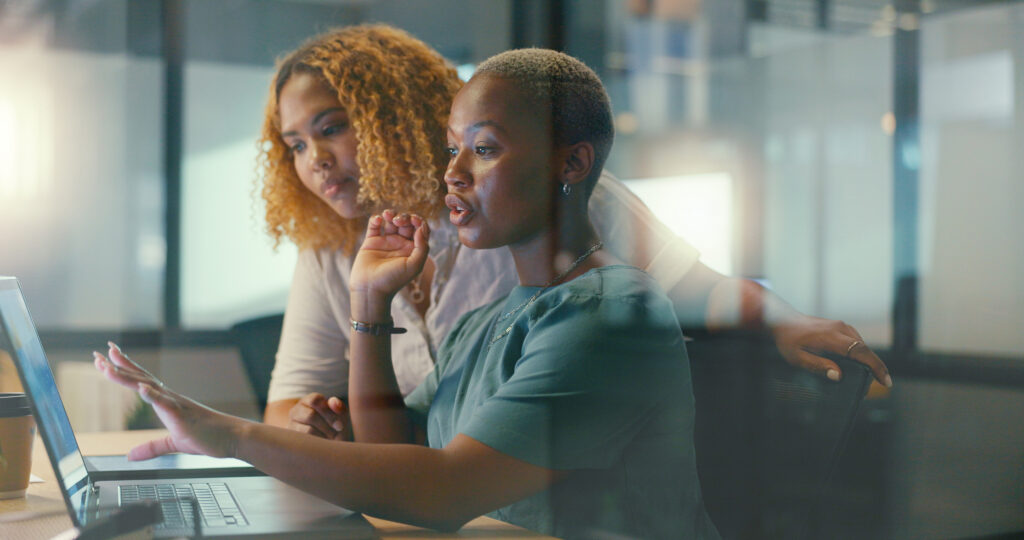 Photo by C Coetzee / Adobe Stock (Laurean Education-lisenssi)
Photo by C Coetzee / Adobe Stock (Laurean Education-lisenssi)
As part of this project, the Blended Intensive Program (BIP) ”Cities Futures – Interdisciplinary Challenges” was implemented by ISCTE University Institute of Lisbon. This 11-week program based on Learning by Developing pedagogical model, combining online learning with a week-long intensive in Lisbon, held 20-24 January, 2025. Ten students from Laurea participated, representing a diverse group of bachelor’s and master’s degree programs. In addition, students from InCITIES partner universities in France and Slovakia also participated. This writing compiles insights of the learning path from the students’ feedback, discussions, and reflections as well as my own observations, especially from the immersive week spent in Lisbon.
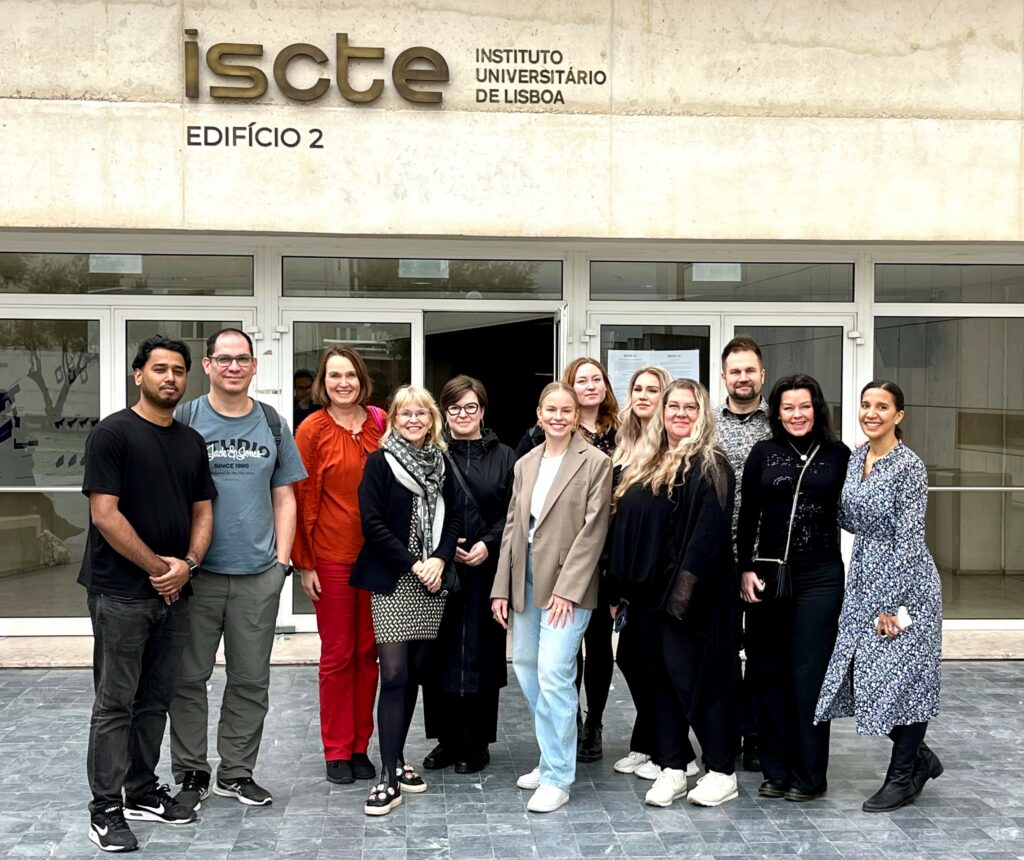
Picture 1: Laurea delegates at ISCTE, Lisbon. (Photo: Elina Wainio)
Lisbon: A Living Classroom
The week in Lisbon was a vibrant learning experience. The educational program was a good continuation to the online lectures and real-world assignments, with guest speakers and visits to the partner organizations. The program included topics such as inclusion, public safety, floodwater management, sustainable transportation, and fostering entrepreneurship.
Some particular visits stood out. First, at Lisbon Civil Protection Center, students were given high-pitched whistles to keep by their bedside, a precaution designed for earthquake situations. While the idea initially sparked laughter, it quickly became clear why it’s vital: Lisbon, situated in a seismic zone, has a history of earthquakes. The whistle could be the difference between life and death if trapped in rubble during the night.
Another unforgettable experience involved tasting beer made from purified sewage water—an innovative solution for sustainable resource use. Some hesitation preceded the tasting but curiosity won: to everyone`s positive surprise, the “waste water beer” was very tasty!
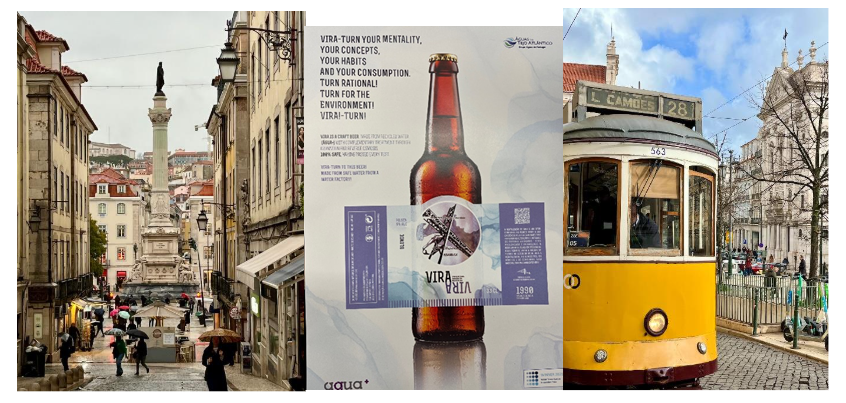
Picture 2: Views and tastes of Lisbon. (Photos: Elina Wainio)
At the university`s innovation center, young entrepreneurs shared their success stories about transforming groundbreaking ideas into market-ready products. That reinforced the belief that anyone with a creative vision, right competences, persistence and proper support can lead to self-employment and even create a thriving business.New environment stimulates learning, and Lisbon itself, with its climate, language, and urban structure with rich layers of history, provided the perfect backdrop for deepening students’ understanding of city life and the challenges of urban development. The city provided an excellent living classroom for experiencing different conditions and situations. When moving around the city by trams, enjoying pasteis de nata in cafés, listening to fado performance and enjoying tasty seafood dinner with vinho verde, all the senses received information, even unconsciously, that evoked emotions and enhanced learning. The exposure to such a diverse environment allowed students to connect theory with practice and sparked ideas for innovative city solutions. The ideas began to emerge, fueled by a fresh perspective on urban living.
Face-to-Face Collaboration: A Game Changer
During the online weeks, the challenges in communication related to differences in national, study-field, and learning cultures evaporated when student teams began working intensively face-to-face. Online, the availability and interaction of team members to work on assignments was often unsatisfactory, even frustrating. Team members from certain countries could easily be labeled lazy, indolent and arrogant because they were not actively involved in collaboration. The root causes of the challenges were revealed in constructive and good-spirited face-to-face discussions, which broadened each participant’s knowledge of different countries and their conditions. Overlapping schedules, weak network connections and a lack of familiarity with learning in working-life projects were revealed behind team members labeled as inactive. The project management skills and familiarity with LbD learning model of Laurea students played a significant role in the completion of project assignments.
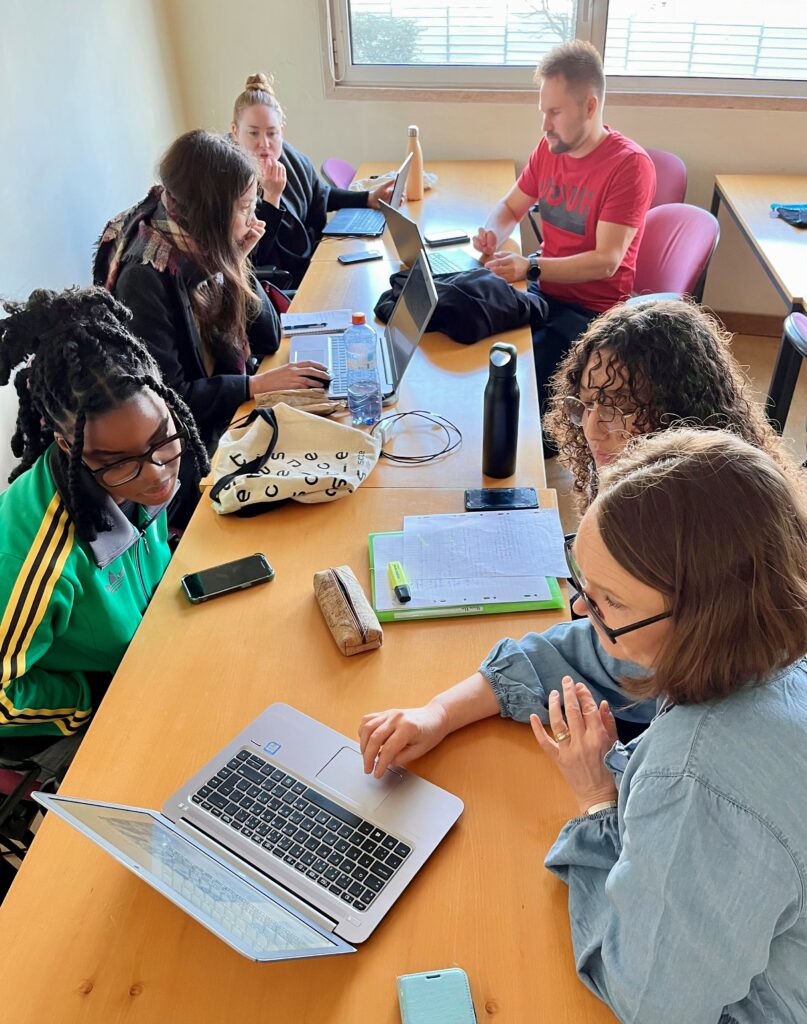
Picture 3: A student team studying and preparing for the hackathon. (Photo: Elina Wainio)
This shift from virtual to in-person work highlighted the power of direct collaboration. Tasks that felt disjointed online suddenly came together with greater ease and efficiency. Students become fully engaged once they could communicate through body language, facial expressions, and real-time feedback. It was a proof of the power of human connection in learning, and it reinforced the value of face-to-face interactions in today’s digital age.
Meaningful Learning: Motivation for Greatness
For all the students involved, the BIP study was regarded deeply meaningful. Knowing that their projects addressed real-life challenges—such as integrating autistic individuals into the workforce or using technology to create sustainable mobility—fueled their commitment and creativity. Also, working in international teams gave students the opportunity to learn from the best practices of other countries, which they could apply back home.
By engaging in the development of future cities, they recognized that they were not passive learners —they were the decision-makers and problem-solvers of tomorrow. Contributing to the design of sustainable, inclusive cities at this early stage was not just an academic exercise; it was a chance to make tangible, lasting impacts on the world.
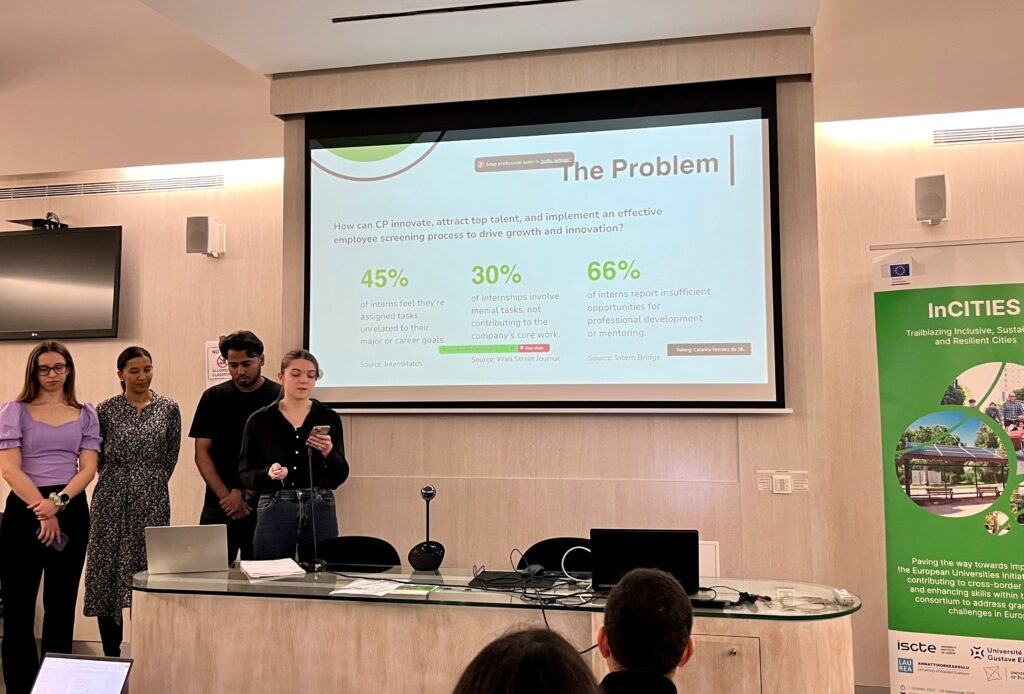
Picture 4: A student team presenting their price-winning solution. (Photo: Elina Wainio)
The final highlight was the hackathon at the end of the week. Each team presented their ideas to a panel of partner organizations and professors, who were eager to hear new, innovative solutions. One team from Laurea even earned second place with a groundbreaking concept: instead of relying on traditional internship programs, their proposal focused on engaging global experts in innovation. The partner company’s response was: “This is exactly what we need!” Feedback like this gave students a deeper sense of purpose and pride in their work.
Final Reflections
At the end of the week, spontaneous feedback from Laurea students reflected a sense of fulfillment and gratitude. “I would do it again!” ”A unique chance to learn!” ”An unforgettable experience!” These sentiments echoed the powerful impact of the exchange and the whole learning path. The week in Lisbon not only expanded students’ horizons through cultural encounters and language practice but also fostered personal growth and a sense of connection with others.
In addition to the students’ joy, it was clear that the development-based Learning by Developing (LbD) model had worked very well in this international context. The creation of the BIP learning module involved thoughtful planning, including pedagogical dialogue and cross-cultural understanding within the InCITIES consortium. The success of the program demonstrated the potential of collaborative learning and development ecosystems to create real-world change.
The first image in this article (the feature image) is not licensed under CC BY-SA. It has been used in accordance with the terms of the Adobe Stock Education License and may not be reused or redistributed without separate permission.